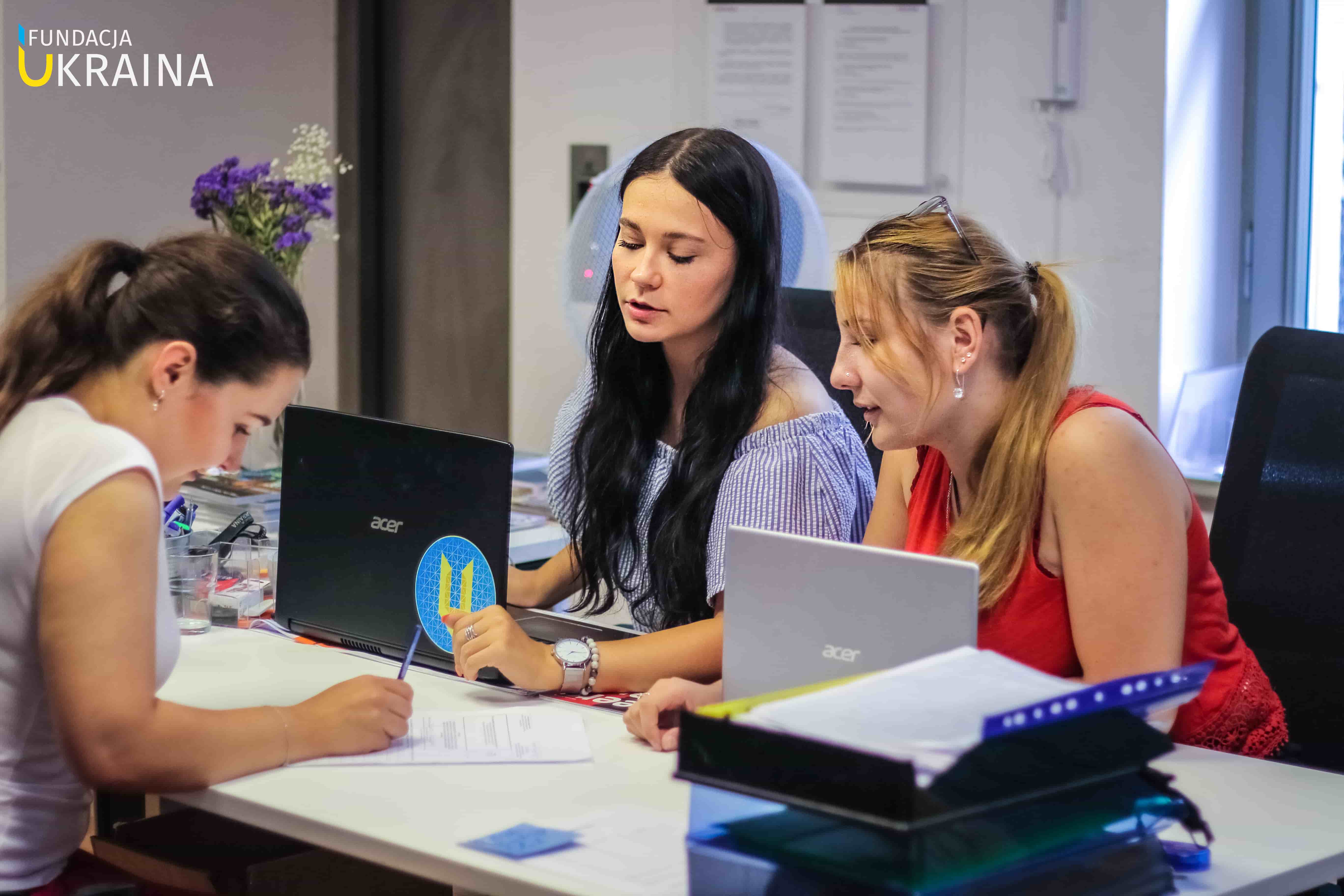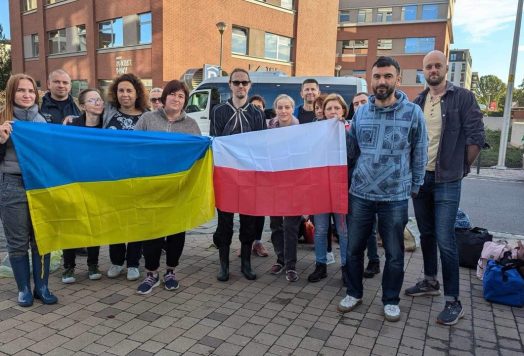Ukraine Foundation specialists have developed a list of the best places offering free information help for migrants throughout the city to facilitate the process of seeking help in cases of daily life, professional and legalization situations.
In our activities, we, as the Ukraine Foundation, try to emphasize knowledge and various ways of transferring this knowledge to foreigners residing in Lower Silesia. That is why we offer a large number of information and consultation services, which can be visited free of charge by any third-country national.
Information help for foreigners throughout the city
We have collected for you Top 5 Information Points created as part of projects implemented by the Ukraine Foundation. This list will definitely be helpful if you have any questions related to the adaptation of migrants and will facilitate the search for information support for foreigners throughout the city:
1. InfoCUKR – is a unique information point for foreigners, which offers free information help and specialist consultations in the field of law, integration and professional questions, and recently, as part of the reStart project, individual psychological consultations. At CUKR you can find help for migrants in four languages: Polish, Ukrainian, Russian and English. The Infopoint door is open 5 days a week: from 14:00 to 20:00 on Mon, Wed, Fri and from 10:00 to 14:00 on Tue, Thurs. InfoCUKR is located in the city center at ul. Ruska 46-a.
More information about all events at CUKR, online registration for consultations with specialists and ongoing contact with consultants available on the CUKR fb page – Center of Ukrainian Culture and Development.
2. WroMigrant, run by the Municipality of Wrocław located at the Wrocław Center of Social Development at Plac Dominikański 6. Current information about consultation hours can be found at: https://wcrs.wroclaw.pl/.
3. WroMigrant w Centrum Biblioteczno-Kulturalnym FAMA prowadzony przez Gminę Wrocław, położony jest na północy miasta przy ulicy Bolesława Krzywoustego 286. Harmonogram konsultacji dostępny będzie na stronie https://www.fama.wroc.pl/.
4. WroMigrant at the FAMA Library and Cultural Center run by the Municipality of Wrocław, is located in the north of the city at ul. Bolesława Krzywoustego 286. The consultation schedule will be available at https://www.fama.wroc.pl/.
These points offer advice on administrative and legal matters, including registration issues, driving license, vehicle registration, PESEL, PIT, NIP and everyday life matters regarding public transport, education, health care, and childcare.
Linguistic support is also provided – translations in particularly complex cases, in accordance with the competence of the reported cases. Group consultations and information meetings are also planned at various locations throughout the city.
Administrative and legal advice provided remotely
5. Remote Information Point (ARAW) – remote administrative and legal advice provided as part of this information point. Such consultations take place via the Internet (Skype, FB, Viber), telephone and e-mail. The remote information point enables advising people who, for various reasons, cannot personally come to information points located in Wroclaw or prefer indirect contact. There will also be consultations on migration law, procedures for legalizing stay (including the correct completion of applications), health insurance, issues related to renting an apartment, procedures for applying for studies and education of foreign children in Polish schools. A link to the consultation can be found here https://araw.pl/.
We invite you to use our free consultation and information services and we are waiting for all third-country nationals in our points listed above.
The reSTART project is co-financed from the National Asylum, Migration and Integration Fund Program and the state budget.
Project “Integration, adaptation, acceptance. Support for third-country nationals residing in Lower Silesia “is co-financed from the National Asylum, Migration and Integration Fund and the state budget.





